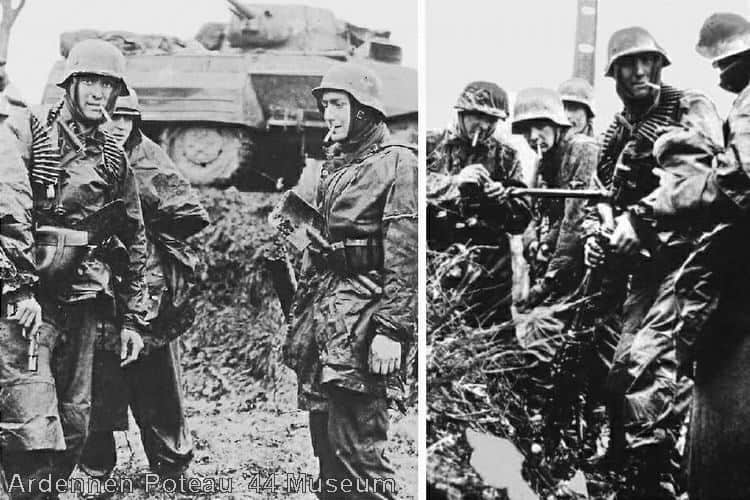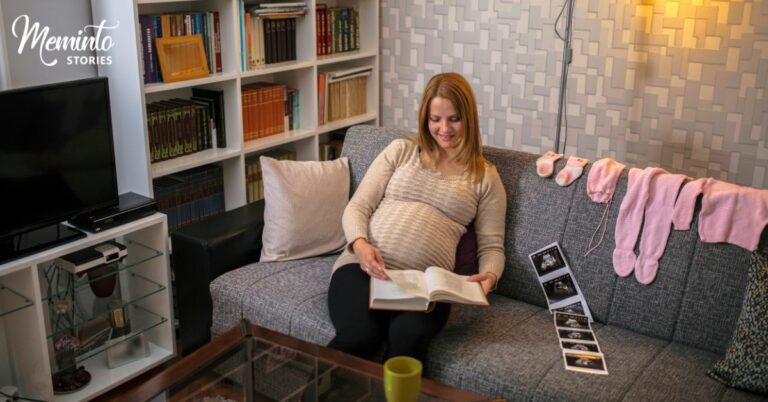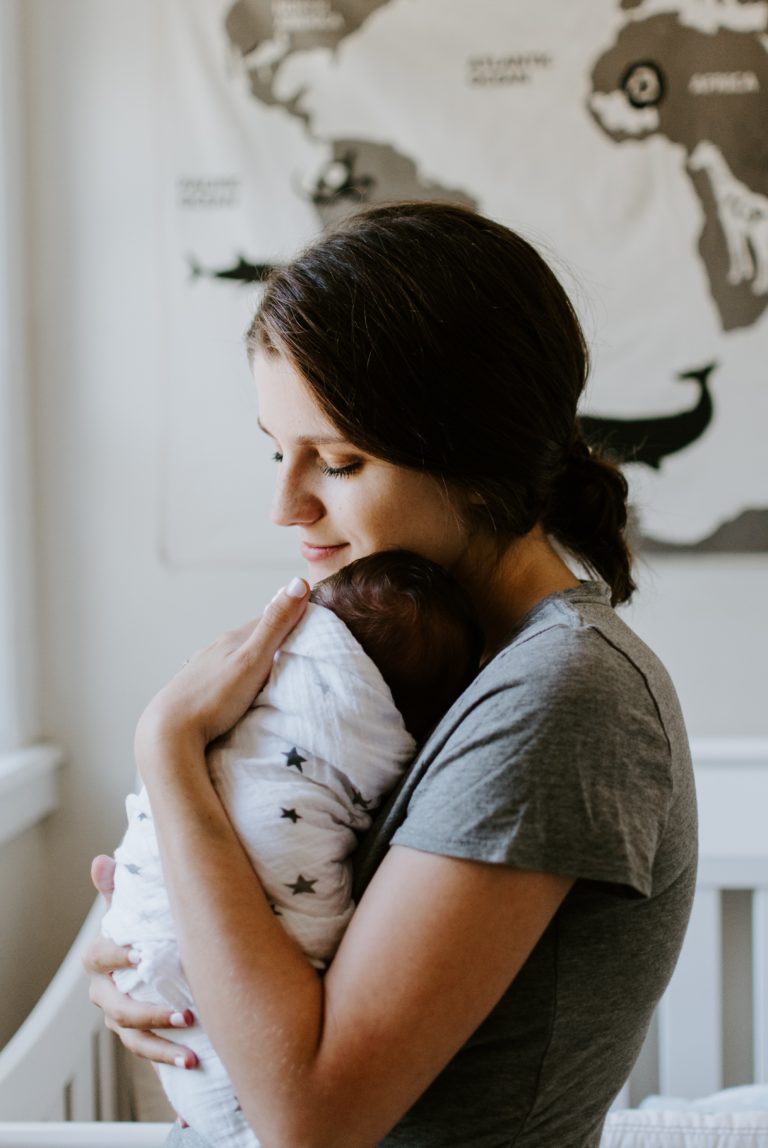On Christmas Eve 1944, in the middle of the Battle of the Bulge, Mother and I had unexpected guests.
When there was a knock at the door that Christmas Eve, Mother and I had no idea of the miracle we were about to witness.
I was twelve at the time, and we lived in a small house in the Ardennes, near the German-Belgian border. Father had used the cottage before the war, when he went hunting on weekends; and when our home town Aachen was suffering more and more from air raids, he sent us there. He himself had been called up for air-raid protection in the border town of Monschau, six kilometers away. “You are safe in the woods,” he had said to me. “Take good care of mother. You are a man now.”

Then there was knocking, and mother quickly blew out the candles. Then she went to the door before me and pushed them open. Outside, against the ghostly background of snow-covered trees, stood two men with steel helmets. One of them addressed Mother in a language we didn’t understand, pointing to a third man lying in the snow. She understood faster than I did that they were Americans. Enemies!
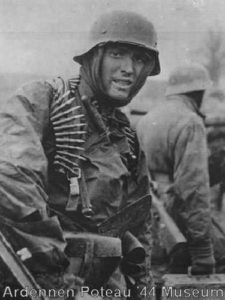
None of them spoke German. Mother tried French, and in this language one of the men could make himself understood to some extent. Before Mother took care of the wounded man, she said to me: “The fingers of both of them are very stiff. Take off their jackets and boots and bring in a bucket of snow. Shortly afterwards I rubbed their blue-frozen feet with melted snow, warming them up.
The stocky, dark-haired one, we learned, was Jim. His friend, tall and slim, was called Robin. Harry, the wounded man, was now sleeping on my bed, with a face as white as the snow outside. They had lost their unit and had been wandering in the woods for three days, looking for the Americans, on guard against the Germans. They were unshaven, but without their heavy coats they still looked like boys. And that’s how mother treated them. “Go get Hermann,” Mother said to me. “And bring potatoes”
This was a radical change in our Christmas program. Hermann was a fat rooster (named after Hermann Göring, for whom mother didn’t have much love), which we had been fattening for weeks, hoping that father would be home for Christmas. And when it had become clear to us a few hours ago that he would not come, mother had said that Hermann should stay alive for a few more days in case father came for New Year. Now she had changed her mind again. Hermann should now immediately fulfill an urgent task.
While Jim and I helped in the kitchen, Robin took care of Harry, who had been shot in the thigh and almost bled to death. Mother tore a sheet into strips to dress the wound.
Soon the tempting smell of roasted cock wafted through the room. I was just setting the table when the knock came again. In the expectation of seeing more lost Americans, I opened the door without hesitation. Outside were four men in uniforms who were well known to me after five years of war: German soldiers – ours!
I was paralyzed with fright. Despite my youth, I knew the law: Whoever harbors enemy soldiers commits treason. We could all be shot! Mother was afraid too. Her face was white, but she stepped outside and said calmly: “Merry Christmas! The soldiers also wished her a Merry Christmas. “We have lost our unit and would like to wait until daybreak,” said the leader, a non-commissioned officer. “Can we stay with you?”
“Of course”, replied mother with the calm of despair. “You can also have a good, warm meal and eat it with us”.
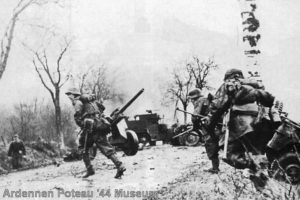
“Who’s in there?” asked the sergeant curtly, “Americans?”
Mother looked into each one’s frostbitten face. “Listen,” she said slowly. “You could be my sons, and so could those inside. One of them is wounded and struggling for his life. And his two comrades are like you: lost, hungry and tired. On this night”, she now spoke to the sergeant and raised her voice, “on this holy night we do not think about killing!
The sergeant stared at her. For two or three endless seconds there was silence. Then Mother put an end to the uncertainty. “Enough talk!” she said, clapping her hands. “Put your weapons there on the wood – and make it quick or the others will eat it all.”
The four soldiers laid their weapons on the box of firewood in the corridor as if dazed: two pistols, three carbines, a light machine gun and two bazookas. Meanwhile, Mother spoke hastily with Jim in French. He said something in English, and I watched in amazement as the Americans gave Mother their weapons as well.
When the Germans and Americans stood shoulder to shoulder in the small room, mother was in her element. Smiling, she looked for a seat for each of them. We only had three chairs, but mother’s bed was big. There she put two of the later arrivals next to Jim and Robin. Then, without taking any notice of the tense atmosphere, she started cooking again. But Hermann didn’t get any bigger now, and we had four more to eat. “Quick,” she whispered to me, “get some more potatoes and some oatmeal. The boys are hungry, and when your stomach growls, you get irritable.”
While I was raiding the pantry, I heard Harry moan. When I came back, one of the Germans had put on glasses and was bending over the American’s wound. “Are you a medic?” asked Mutter. “No,” he replied, “but I studied medicine in Heidelberg until a few months ago.” Then he explained to the Americans in what seemed to me to be quite fluent English that Harry’s wound was not infected thanks to the cold. “He just lost a lot of blood,” he told mother. “What he needs now is rest and a good meal.”
The pressure began to ease. Even to me, when the soldiers sat next to each other, they all seemed very young. Heinz and Willi, both from Cologne, were sixteen. The sergeant, at twenty-three, was the oldest. He brought out a bottle of red wine from his bread bag, and Heinz found a loaf of brown bread, which mother cut into slices. They were supposed to come to the table for dinner. But she set aside some of the wine. “For the wounded man.”
Then Mother said grace. I saw that she had tears in her eyes when she said the familiar words: “Come, Lord Jesus, be our guest …”. And when I looked around the table, even the eyes of the war-weary soldiers were moist. They were boys again, some from America, some from Germany, all far from home.
Around midnight, Mother went to the door and asked us to come and look at the Star of Bethlehem. Except for Harry, who was sleeping peacefully, we were all standing next to her, and for everyone at that moment of silence and in the sight of Sirius, the brightest star in the sky, the war was very far away and almost forgotten.
Our private truce continued the next morning. Harry woke up, sleepily mumbling, in the last hours of the night, and mother fed him some broth. By daybreak he was visibly stronger. Mother whisked him a strengthening drink from our only egg, the rest red wine and some sugar. The rest of us ate oatmeal. Then two sticks and mother’s best tablecloth were used to make a stretcher for Harry.
The sergeant showed the Americans, bent over Jim’s map, how they could find their way back to their troops. At this stage of the war of movement, the Germans proved to be surprisingly well informed. He put his finger on a stream. “You go that way,” he said. “On the upper reaches, you’ll come across the 1st Army, which is regrouping there.” The physician translated everything into English. “Why not Monschau?” Jim asked. “Why not Monschau?” cried the sergeant. “We’ve taken Monschau again.”
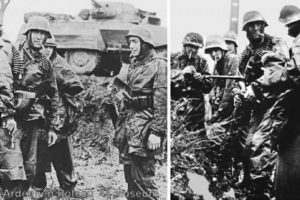
When I came back into the house, mother had brought out the old family Bible. I looked over her shoulder. The book had been opened at the Christmas story, at the account of the birth in the manger and the three wise men who came from far away to offer their gifts. Her finger slipped over the line: “… and they went back to their country by another route.“
Fritz Vincken, rights unknown
Give away a life book now!
Your parents or grandparents also have exciting stories to tell? Give them a Meminto life book. They get access to hundreds of questions. We structure their answers, make sure they don't forget anything and take care of printing and mailing. In a few weeks they will have a book about their life in their mailbox!


